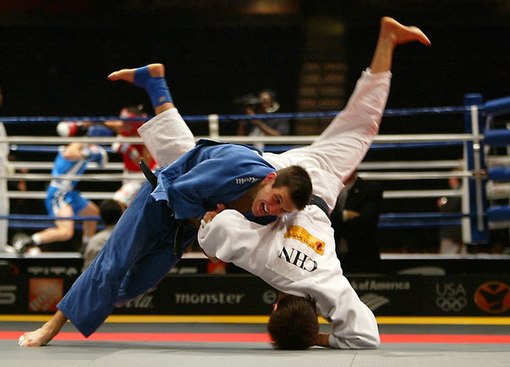Contents
1. History of Judo
- 1882: Founded by Jigoro Kano as physical and spiritual education system
- Origins: Modernization of ancient samurai jiu-jitsu techniques
- 1948: International Judo Federation established
- 1964: Olympic debut (Tokyo)
- Today: 40+ million practitioners in 200 countries
2. Main Types
| Type | Features |
|---|---|
| Competitive | Olympic rules, competition focus |
| Traditional | Preserving Kano’s original philosophy |
| BJJ | Ground technique development |
| Kids Judo | Coordination development focus |
3.Pros and Cons
Pros:
- Full-body workout
- Teaches self-control
- Practical self-defense
- Suitable for all ages
- Low injury rate
Cons:
- Requires time to master
- Injury risk with poor technique
- Strict weight categories
4. Raining Program
Beginners (3 months):
- Ukemi (fall techniques)
- 10 essential throws
- Osaekomi-waza
- Sparring basics
Advanced:
- Throw combinations
- Transitions to ne-waza
- Tactical training
5. Scientific Facts
Research shows:
- 500-700 kcal burn
- 15-20% cognitive improvement
- Reduces cortisol levels
- Enhances proprioception
6. Fun Facts
Records:
- Fastest ippon: 4 sec
- Heaviest judoka: 220kg
Unique Uses:
- Astronaut training
- Police techniques
7. Judo Philosophy
“Softness conquers strength” – “ju” (flexibility) and “do” (way) principles.
3 key aspects:
- Mutual welfare
- Maximum efficiency
- Self-improvement







